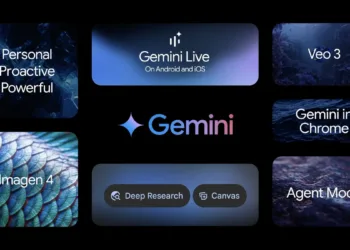Samsung is cooking up something revolutionary behind closed doors! The tech giant is quietly conducting extensive internal testing on breakthrough battery technologies that could transform future Galaxy smartphones. While competitors rush to market with incremental improvements, Samsung is taking a methodical approach that prioritizes safety and longevity over flashy announcements.
This strategic patience could pay off massively for Galaxy users who’ve been waiting for genuine battery breakthroughs rather than minor capacity bumps.
Table of Contents

What Samsung Is Testing in Their Secret Labs
Samsung is conducting extensive internal tests on new battery chemistries and technologies, reportedly testing “lots of battery technologies” with the goal of developing batteries with longer battery life while maintaining safety. The company’s meticulous approach ensures that any new technology incorporated into Galaxy phones will perform reliably throughout the device’s entire lifespan.
Unlike the typical tech industry rush to market, it’s battery division is taking an incredibly cautious approach. This isn’t about being slow – it’s about being smart. The company learned valuable lessons from past battery incidents and is determined to avoid any safety compromises in their pursuit of better performance.
The focus appears to be on increasing energy density while maintaining the same physical footprint. This means future Galaxy phones could potentially offer significantly longer battery life without becoming thicker or heavier – a holy grail for smartphone design.
Why Samsung Isn’t Rushing Battery Innovation
The smartphone industry has seen what happens when battery technology is rushed to market. Samsung’s careful approach reflects hard-learned lessons about the critical importance of thorough testing and validation before mass production.
Although there has been no official announcement yet, Samsung’s move to internally test new battery technology shows their seriousness in presenting real improvement in the future, without sacrificing user safety. This patient strategy might seem frustrating for users eager for better battery life, but it’s actually the most responsible approach.
Current Galaxy phones like the S25 Ultra are already achieving impressive battery performance through software optimization and efficient processors. The S25 Ultra beat previous results by more than 45 minutes, even though its battery capacity hasn’t changed from 5,000 mAh, thanks to power management features of the Snapdragon 8 Elite chipset.
The Silicon-Carbon Battery Challenge
Reports suggest Samsung is exploring silicon-carbon battery technology, which promises significantly higher energy density than traditional lithium-ion batteries. However, Samsung is facing difficulties in developing silicon-carbon batteries, which might push back implementation on coming flagship Galaxy phones.
Silicon-carbon batteries represent a major technological leap, offering potentially 20-40% more capacity in the same space. However, they also present unique challenges in terms of manufacturing consistency, long-term stability, and thermal management.
These technical hurdles explain why Samsung is taking its time. Rather than rushing a half-baked solution to market, they’re working to perfect the technology before announcing anything concrete.

What This Means for Future Galaxy Phones
The fact that it is just testing new methods to increase the energy density of its batteries suggests it will take a while. This timeline indicates that revolutionary battery improvements likely won’t appear in the immediate next-generation Galaxy phones.
However, when Samsung does introduce their new battery technology, it’s likely to be a significant leap forward rather than an incremental improvement. The company’s methodical approach suggests they’re aiming for a breakthrough that will set new industry standards.
Current Galaxy users shouldn’t feel left behind, though. Samsung continues optimizing battery performance through software improvements and more efficient processors, as evidenced by the impressive battery life gains in recent Galaxy S25 models.
The Bigger Picture for Smartphone Innovation
Samsung’s cautious battery development strategy reflects a broader industry maturation. The days of rushing unproven technologies to market are giving way to more responsible innovation cycles that prioritize user safety and long-term reliability.
This approach might mean waiting longer for dramatic battery improvements, but it also means those improvements will be genuinely transformative when they arrive. Samsung appears to be positioning itself for a major battery breakthrough that could redefine smartphone endurance expectations.
Bottom line:
Samsung‘s secret battery testing represents the future of responsible innovation – taking time to perfect revolutionary technology rather than rushing incremental improvements to market.








